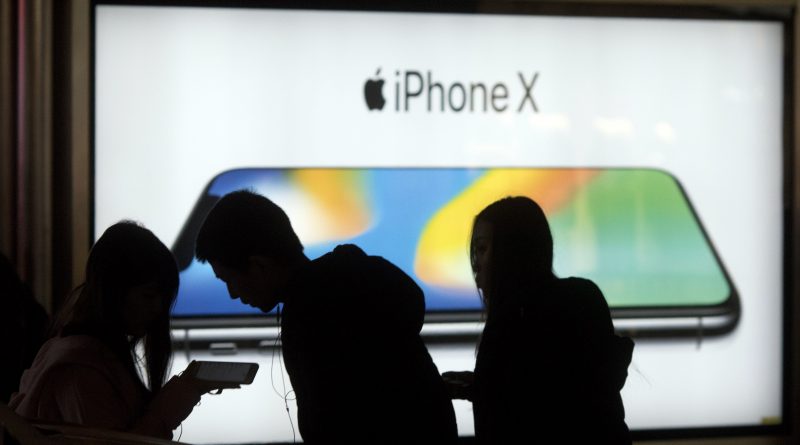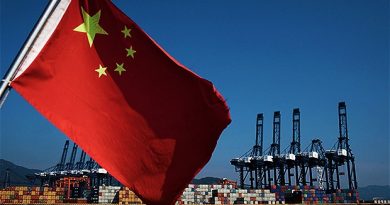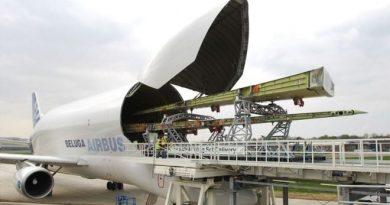Apple in talks for first order with a Chinese chipmaker
A deal with Yangtze Memory will mark milestone in China’s tech development
CHENG TING-FANG, Nikkei staff writer
TAIPEI — Apple is in talks with state-backed Yangtze Memory Technologies to buy NAND flash chips from it, a move that will mark the U.S. giant’s first purchase from a Chinese memory chipmaker and a huge boost to the local sector.
The deal will be a big coup for Yangtze Memory and China if it goes through. For Yangtze Memory, a little known technology company, securing a deal with a global entity such as Apple will be a big deal even if the initial orders are small. For China, a deal with Apple will go some way toward its ambition to cut dependence on foreign chip supply, area in which Beijing has shown it is willing to invest heavily.
Whether Apple is under any pressure to buy from Chinese makers is unclear. Afterall, China has been known to apply pressure on foreign technology companies that want to operate within the country. One thing is for sure, Chinese deals will help Apple grow its business there, according to an industry executive.
For now, no Chinese company has yet to produce memory chips and Yangtze Memory’s first factory lines, worth some $24 billion, in the city of Wuhan is set to start production only sometime in 2018.
As such, the earliest that the deal could come into fruition will be 2019 but industry sources say it is more likely to be after 2020 before Yangtze Memory can produce enough of the components at a standard that Apple requires. Apple will use these chips in new iPhone models and other products for sale in the Chinese domestic market specifically, according to two people familiar with the matter.
Apple now buys NAND flash memory chips for its iPhones from Toshiba of Japan, Western Digital of the U.S., SK Hynix and Samsung Electronics of South Korea. It is the world’s biggest consumer of these chips, taking roughly 15% of overall global demand of 160 million gigabytes in 2017, according to Sean Yang, an analyst at Shanghai-based research company CINNO.
NAND flash memory stores information and is essential but also one of the most expensive components to go into almost every electronic device. For instance, the iPhone X comes in 64 and 256 gigabyte versions and is priced accordingly.
CINNO’s Yang said that as Apple will only use components that meet its high standards, supplying to the U.S. giant will help a manufacturer finetune the quality of its products; it will raise its capability for mass production and help it grow quickly into an international player.
Yangtze Memory, previously known as Yangtze River Storage Technology or Changjiang Storage, is an affiliate of state-supported tech conglomerate Tsinghua Unigroup. The company is viewed as China’s hope to play catch-up in the sector and to challenge market leaders such as Samsung Electronics, Toshiba, SK Hynix, Micron and Intel that together control the global NAND flash market in 2017.
Yangtze Memory’s key shareholders include China Integrated Circuit Industry Investment Fund, a high-profile investment vehicle in China’s chip sector, Tsinghua Unigroup, and the local Hubei government.
Tsinghua Unigroup and Yangtze Memory previously engaged with foreign peers such as Micron, SK Hynix and Intel to license NAND flash technologies, according to Nikkei Asian Review and other local media reports, but there was no major breakthrough in talks.
Tsinghua Unigroup denied that it had talked to Micron and SK Hynix but declined to comment on whether it would seek to work with Intel. The U.S. chip titan invested $1.5 billion for approximately 20% of the holding company under Tsinghua Unigroup in 2014.
Intel said in a statement that it has had a strong relationship with Tsinghua Unigroup for many years but the terms of that relationship are confidential. The company declined to comment on whether it would license its 3-D NAND flash memory intellectual property to the Chinese group.
Both Apple and Yangtze Memory did not respond to Nikkei Asian Review’s request for comment.
China is relentlessly building a competitive semiconductor industry, pouring in funds from central and local governments and looking overseas for acquisition possibilities. But given national security concerns, Beijing is facing pushback overseas.
In 2015, the $23 billion attempt by Beijing-backed Tsinghua Unigroup to take over Micron was blocked by the U.S. government, citing national security concerns. The Chinese conglomerate later killed a $3.8 billion bid to become the largest shareholder in Western Digital after the investment was flagged for scrutiny by American authorities in 2016.
For Apple, however, it needs to strike a balance between the interests of its own nation and China, one of its key markets and its most significant manufacturing base. Apple also has to meet its own target of securing memory chip supply. In 2017, it joined a consortium led by U.S. private equity company Bain Capital in a 2 trillion yen ($17.7 billion) deal to invest in the NAND flash memory chipmaking unit of embattled Toshiba.
To this end, Apple’s China-based suppliers have more than doubled to 19 companies in 2017, up from only seven in 2012, according to NAR analysis based on Apple’s supplier list released annually since 2012.
In the October-December period, after the U.S. and Europe, China was Apple’s third largest market that accounted for nearly 20% of its revenue of $88.29 billion.
Chief Executive Tim Cook has certainly made China sales a priority. Since taking the helm in 2011, he has made 12 visits to China. In 2017 alone, he travelled to China in March, October, and December, looking to strengthen ties with local Chinese partners and government bodies.
Last July, Apple came under criticism after it removed several virtual private network services from the Chinese version of its App Store that were helping users in China bypass the country’s infamous Great Firewall that heavily restricts access to foreign websites. It also took down New York Times apps in late 2016 at the request of Chinese authorities, a move seen by many as amounting to censorship.
“When you go into a country and participate in a market, you are subject to the laws and regulations of that country,” said Cook in a Fortune forum in the Chinese city of Guangzhou last December responding to questions about the removal of VPNs in the local App Store.
“My hope over time is that some of the things, the couple of things that’s been pulled, come back. I have great hope on that and great optimism on that,” he added.
On the other hand, Apple has also said it will pour in $350 billion to help grow the U.S. economy and create 20,000 jobs over a five-year period. Apple was singled out by President Donald Trump during his election campaign for relying on the global supply chain rather than making its products at home, thereby leading to a decline in domestic manufacturing and costing Americans jobs.
Since Trump’s ascension, Apple has awarded homegrown laser component supplier Finisar $390 million for research and development that will create more than 500 jobs there.




